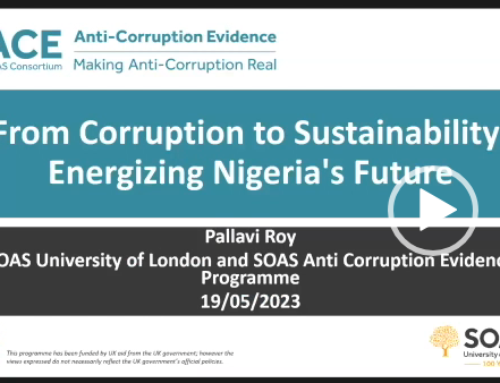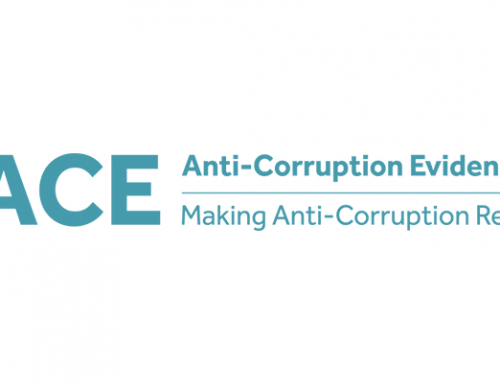In this video, an owner explains how a typical artisanal oil refinery works. The rudimentary technology has evolved over time into an industrial-scale phenomenon. There are thousands of similar sites located across the Niger Delta of Nigeria, processing stolen crude oil, and producing gasoline, diesel, and kerosene. This presents a conundrum to policy makers as it highlights a productive trade, which creates employment and fuels. But it is deemed illegal, as it functions on stolen crude oil, and has severe impacts on environment, health, and corruption.
This video is part of research by the SOAS Anti-Corruption Evidence (ACE) programme, and SDN Nigeria, into the networks of corruption associated with the artisanal oil industry. It explores the ‘benefits’ or incentive structures, which extend beyond those directly involved in refining, to thousands of citizens who depend on the fuels they supply, and powerful figures who enjoy the revenues generated. Pragmatic steps to encourage action from these different beneficiaries, and reduce the negative externalities, are explored in an associated research paper, and the first video in this series.
For more information, visit ace.soas.ac.uk and www.stakeholderdemocracy.org






